Spotlight: Poetry & Non-fiction Writer Lisa Marie Basile
This week's spotlight covers Lisa Marie Basile, a NYC-based author, poet, and journalist. Ready to learn more?
Hello all and welcome back to another Author Spotlight! This time we’re covering Poetry & Non-fiction writer Lisa Marie Basile, who is the author of Saint of— a poetry collection built “With themes of grief, illness, and generational trauma woven alongside sensuality and beauty.”
And alongside that, she has many other works and published pieces, all of which can be found here: Lisa Marie Basile's Works.
Lastly, before we dive into learning about this talented writer, Lisa mentioned something really awesome. Not only is she a writer and author, but she’s also a disability and foster youth awareness advocate!
We’ll get into that more later, but it was definitely worth the mention. Now without further ado, let’s learn about Lisa and her work!
Lisa Marie Basile is an NYC-based author, poet, and journalist. She is the author of a few books of poetry and nonfiction, including the new poetry collection, SAINT OF (White Stag Press).
Her work can be found in The New York Times, Narratively, Entropy, Tinderbox Poetry, Clash Books, Spork Press, and more. Her work has been included in anthologies like Best Small Fictions and Best American Experimental Writing 2020. She has led workshops or spoken in panel discussions at Manhattanville College, Columbia University, Emerson College, Pace University, The Moon Studio, The Author’s Guild, Stanza Books, and more. She holds an MFA in writing from The New School in New York City. She is an advocate for chronic illness awareness and foster youth.
Below are some questions Lisa answered for the Spotlight.
What drew you to writing poetry? What sort of themes and ideas do you explore in your work?
Poetry gave me a permission that I was born seeking — it's always felt like second nature to me. When I was younger, when I discovered poetry, I felt a pull to its expansiveness. That it could hold multiple truths, realities, and timelines in one small space really spoke to me.
Do you have a favorite style or structure you follow?
I tend to be drawn to prose poems—I like the feeling they create (urgency, intensity), the aesthetic, and the constraint (because poetry has so much boundlessness). But I also love playing with white space and engagement. Good lineation can be so delicious.
How do you approach your writing?
I know no one ever admits this, but I am wild and chaotic and reckless and undisciplined and currently in a place where I am trying to establish some ritual to it all, especially as I explore new genres, like autofiction, that demand energy and different aspects of my brain. Part of this is because I have an autoimmune condition, and I can never know what my body is going to do. I think we as writers need to be more honest about the challenges and unromantic bits in the writing life.
But always, whenever I write, I approach it with obsession. I get obsessed with a mood, a tone, a vibe—a feeling that I HAVE to capture.
What is a piece of advice you've received which has propelled your poetry forward? How has it evolved your writing?
My MFA professor Jennifer Michael Hecht once told me to always give the reader an anchor point inside the work, something real they can hold onto within all the beauty and metaphor. I think it allowed me to see the ugliness of reality as also beautiful and worthy of the Poetic.
I also recently took a class with Elle Nash through Heretics Club, and she said something amazing: "Accepting and reinforcing that writing is something you want to— not just for the rewards. It’s the process in and of itself that matters."
What does your relationship with "Writer's Block" look like?
At this point, "writer's block" and I have a long, entwined relationship. Prior to last summer, I struggled with Block for about four years. I was wholly and totally burned out from writing, publishing, and book promotion. I felt I had lost my voice, my light, my drive. People say, "I haven't written for a few weeks! Is there something wrong with me?" For me, it was years.
At first, I knew I needed to rest.
And then life got in the way: I got married abroad, I broke my back, my house caught on fire. I still couldn't write. At some point, I was choosing everything before the work. Crawling back to the Craft meant I had to find a sense of devotion again. Devotion is attention, love, focus; it's a desire to be uncomfortable inside the want, to let the want pull you—and that's what I did.
I felt the pang to create, and even when it wasn't working, I kept writing. At some point, I ran out of excuses and had to choose my work. After dozens of horrific poems, my voice re-emerged. And then White Stag press invited me to share my manuscript with them. It's been a time of renaissance, and one I know can easily and quickly disappear again.
Below is a poem Lisa included for us to showcase.
What compelled you to write this piece, and what do you hope readers take away from it?
SAINT OF was largely written from some of my experience of girlhood in foster care an experience that made me doubt myself, feel ashamed of my upbringing and family, & made me feel small. And I wanted to destroy that. I wanted to reclaim the wound.
So, in a way, SAINT OF is a book for people—especially women—who feel they are restrained, constrained, or made heavy by their own wounds and traumas, their own desires, their own weirdness and darkness. It is an ode to being "too much," too emotional, too ruinous, too desirous, too wild, too broken.
What was the most difficult part of getting your work published in a journal or book?
OMG, 10 years ago, I had such amazing stamina, focus, and drive. I was hungry for everything. So I would submit a lot of work out. These days, I am more intentional with my energy (because I have so much less!), so I submit to specific places, I collaborate with specific editors, and I pour my energy into specific works. So today, the most difficult aspect, for me, is pushing through my own self-boundaries—exhaustion, burnout, anxiety, fear.
How do you process receiving negative feedback or reviews?
We are not entitled to good reviews, and being a writer means knowing sometimes people won't enjoy your work. I am more and more comfortable with the idea that I am not everyone's poet or writer. I know my work finds and speaks to its people.
I've been rejected so many times over the years, even with my publications and books. It happens, and you're not alone.
And how do you decide which pieces to include in a collection?
I rarely ever write disconnected one-off pieces. So, for me, I get obsessive and I write around, into, and about a theme, feeling, or mood. So, I always create a "conceptual" body of poems that function as one big piece, sort of.
The poems in SAINT OF were all written as invocations of a saint of *something*—so every poem I wrote stemmed from that place. For years, the idea of writing to a saint, or calling on a saint, obsessed me. And they fortunately were given a home by White Stag Press.
Can you tell us more about your publisher, White Stag Press?
Absolutely! Thanks for asking:
White Stag is an indie press that focuses heavily on poetry with an esoteric touch - books that explore the magical or mystical. I adored working with them! They're invested in the intersection between ritual and writing, so all of their books are paired with candles and other items that enhance the reading experience so that all the senses are engaged.
My book came with a gold quill and ink, anointing oil (neroli!) based on my poetry, rose incense and a candle designed by poet & candlemaker Trista Edwards to evoke the feeling of the book. They're just incredibly intentional and collaborative!
You also mentioned earlier being a disability and foster youth awareness advocate, can you share more about that?
I live with an immune-mediated disease called ankylosing spondylitis and a mechanical injury called spondylolisthesis, which is a slipping forward of my spine. For a long time, I thought of myself as dynamically disabled--switching from levels of ability, although I am easing into the use of the word "disability," which is complex and nuanced and yet also so simple.
This has long informed my way of being in the world, my writing, my perspective. I've written about it in literary essays (like this one on my Substack) or on my social media. I'm also a writer and community moderator for the organization Health Union, which platforms chronically ill and terminally ill voices.
I find that poetry is a place that can contain the liminality and layers of the body: It can be a place where I can express desire, movement, illness, fatigue, and also body beauty and decadence. Poetry is a doorway to wholeness, in a sense.
I also largely draw on my experiences in foster care as a teenager. I was in the system for several years and found it had a profound effect on my sense of identity and belonging. My newest book SAINT OF largely explores this experience—and the issues that come with it: family separation, forgiveness, resiliency and vulnerability, grief, rage, and even generational trauma.
Is there anyone who's inspired your writing?
I'm inspired very much not by a person, but by the dueling aspects within us all—good vs evil, enough-ness vs indulgence, fear vs bravery, belonging vs feeling othered or like a stranger.
Are there any poets or poetry books you'd recommend to readers?
My favorite works are always and forever everything by Richard Siken, Marosa di Giorgio, Johannes Göransson, Alejandra Pizarnik.
Right now, I'm loving everything White Stag is also releasing—they're my publisher, so I'm biased, but they're doing such intentional work and giving space to emergent voices, too.
In this section we’ll be covering more details about Lisa’s books, any upcoming releases, and all of her links. The synopsis for each book is pulled from their respective webpage.
Saint Of
“SAINT OF is a gilded exploration of hunger—the hunger for the erotic, the ancestral, the forbidden, divinity, and hope. With themes of grief, illness, and generational trauma woven alongside sensuality and beauty, this collection is both sacrament and defiance. It traces the contours of longing, ruin, and transformation, blurring the boundaries between the carnal and the celestial. These poems are not only an invocation of saints—they are a declaration of self.”
While Lisa is working on a new memoir about foster care, no other details were shared. However, you can subscribe to her Substack, or newsletter to get updates. And she also has an Instagram you can follow too!
We’ve all but reached the end of the road here for this week’s Spotlight, so thanks for sticking around. If you enjoyed learning about Lisa, perhaps go support her by buying one of her collections. It would mean so much to see that happen!
And if you want to see more Spotlights like these, consider subscribing to our publication. We also post book reviews, indie book news, too. But don’t forget about our Catalog, which you can use to discover your next read, or new favorite author!



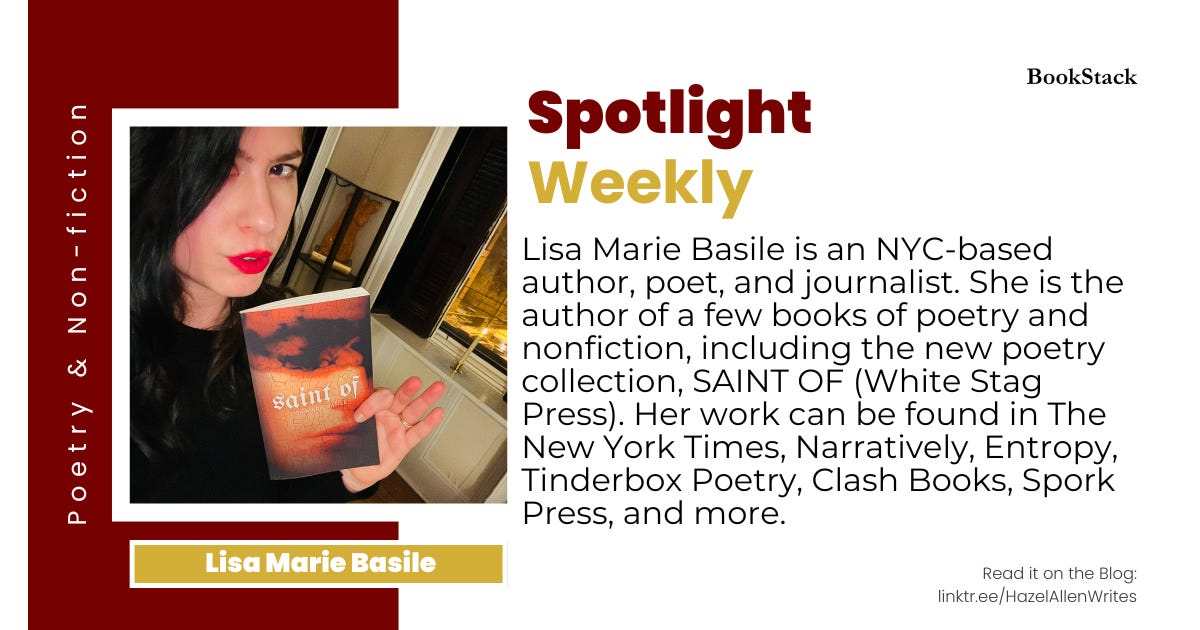
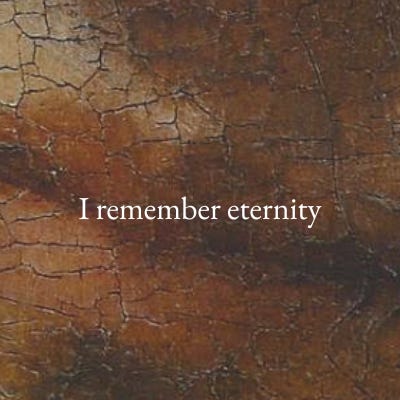

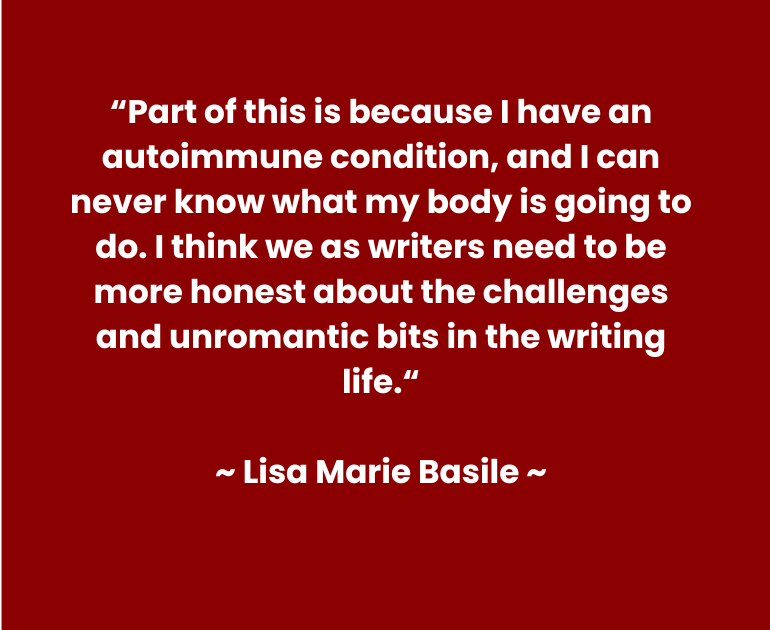
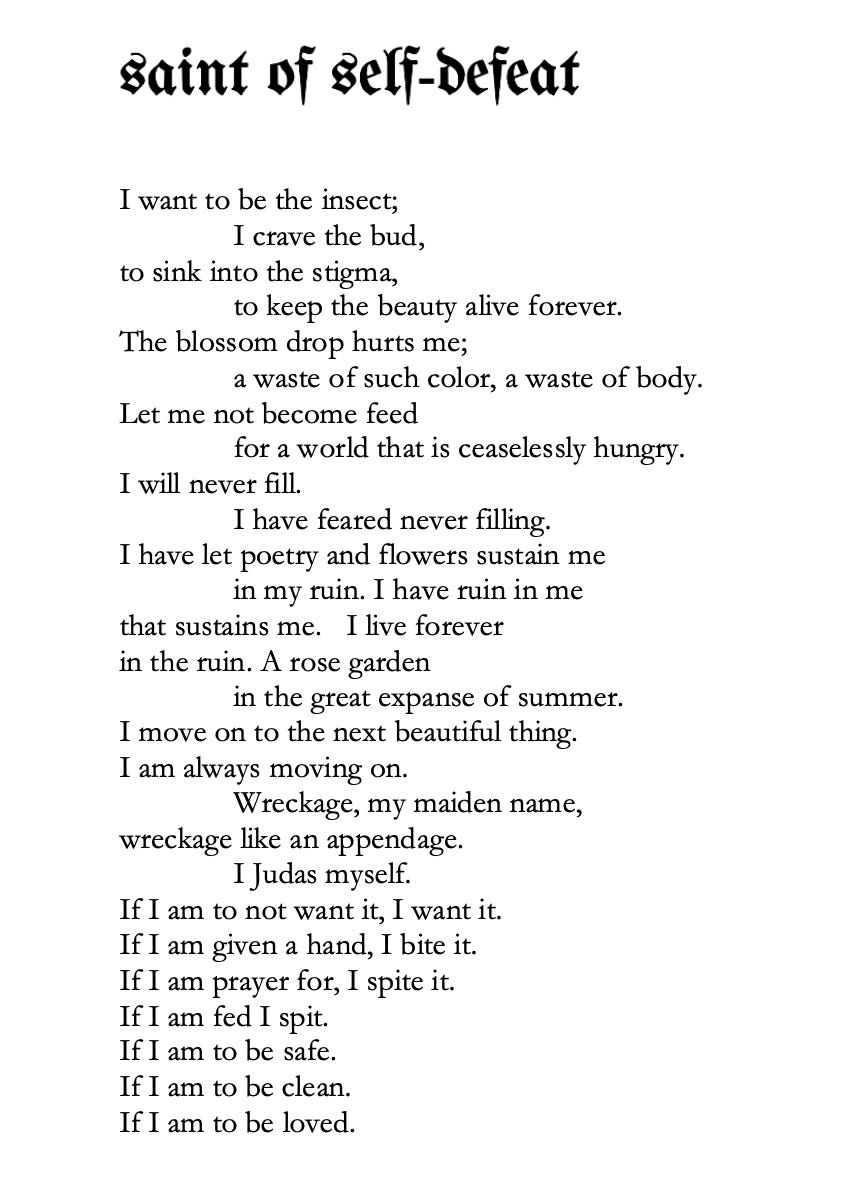
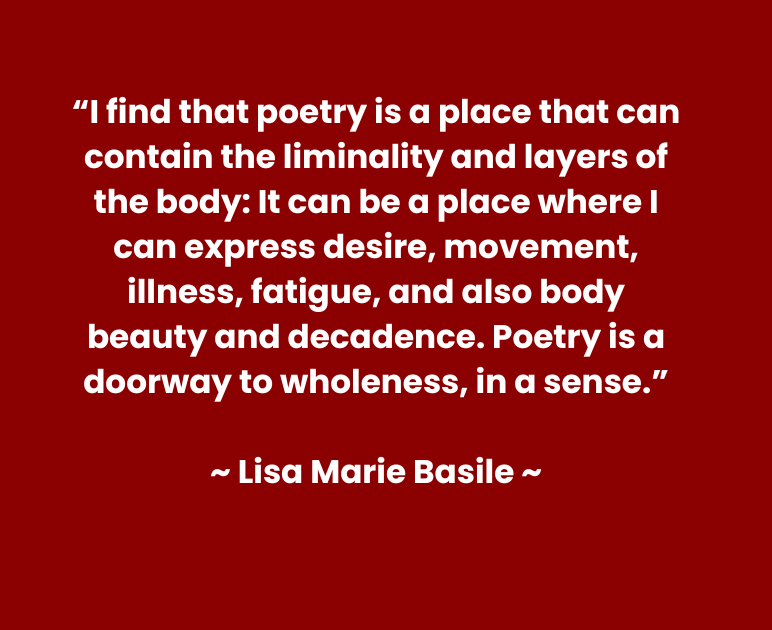

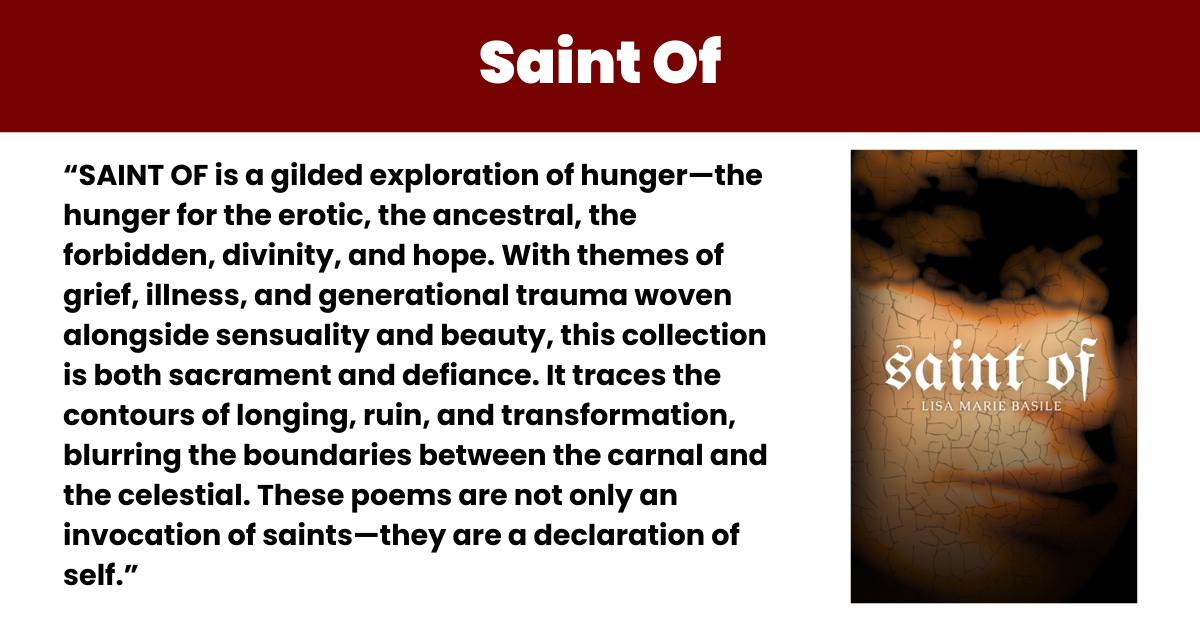
Loved this piece. One helpful suggestion might be to add a link to your catalog with the reference.
Looks superbly interesting & compatible w my other more current goal: writing & publishing 4 both deep interest & a little$